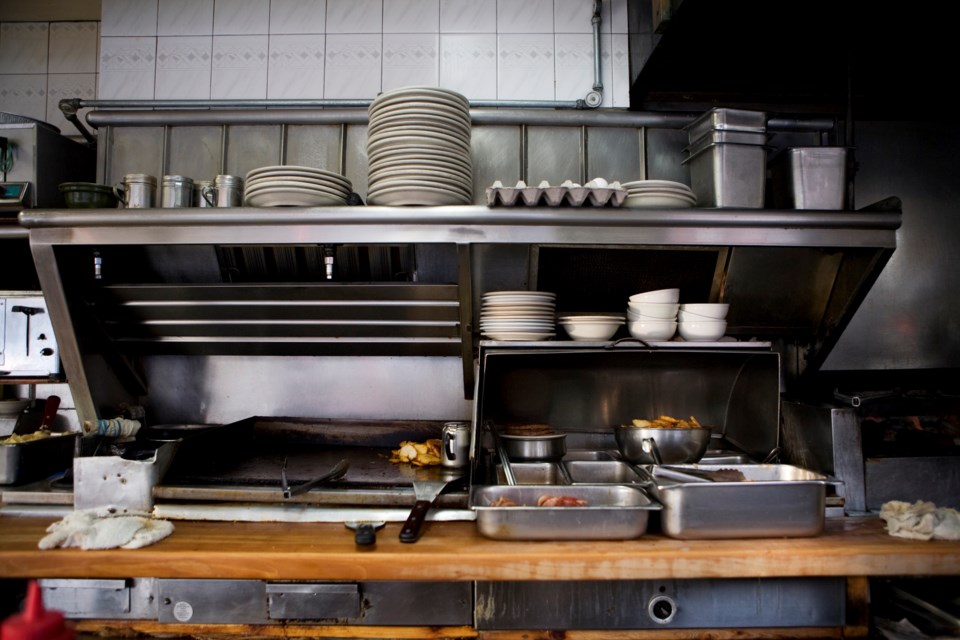Aubree’s Breakfast Place received a high hazard rating on March 12 during a follow-up inspection.
During Northern Health’s inspection there were two critical violations, one repeat violation and four non-critical violations discovered.
The report read as follows:
"A critical violation - cold potentially hazardous food stored/displayed above 4 °Celsius
Observation: Corrected during inspection - Two sets of egg trays were seen stored on the kitchen counter at room temperature opposite to the stove. The eggs were discarded.
Critical violation - equipment/utensils/food contact surfaces not properly washed and sanitized.
Observation: Meat slicer was not cleaned and sanitized properly after the last use and it contained the meat residuals attached to it under the hard-to-clean surfaces.
Non-critical violations include food not protected from contamination
Observation: Eggs in walk-in cooler and a bag of sugar next to the handwashing sink were observed to be stored on the floor.
Food not protected from contamination
Observation: Inappropriate equipment is used as scoops to obtain or move ingredients or product. Scoop handles must be kept free from the product to prevent hand contact and contamination.
Food premises not maintained in a sanitary condition
Observation: There was an accumulation of food residues on the floor of the kitchen, behind equipment, in the walk-in cooler. Food residues was also observed at the bottom of the utensil organizer trays that can lead to contamination of food and attract pests.
Operator has not provided acceptable written sanitation procedures
Observation: Employees were unable to access sanitation plan and provide it for review at the time of inspection. The objective of the sanitation plan is to provide reasonable assurance that the food establishment is being cleaned and sanitized effectively and consistently.
Repeat violation - chemicals, cleansers and similar agents stored or labeled improperly
Observation: An unlabelled spray bottle with green coloured liquid was observed in the dishwashing area. Unlabelled spray bottles may lead to misuse of the chemical, cross contaminate and may lead to ineffective cleaning and sanitation of the food contact surfaces.
Follow up is required."
Edo Japan, 3055 Massey Drive, received a high hazard rating on March 8 and during a follow-up inspection on March 11 received a moderate hazard rating with two critical violations and one non-critical violation.
The report stated:
"Critical Repeat Cold potentially hazardous food stored/displayed above 4 °C.
Observation: Potentially hazardous cold foods are stored at above 4°C in the walk-in refrigerator as well as the standing refrigerator. Internal temperature for various food items (sushi, noodles, chopped vegetables, thawed shrimp) in the two refrigeration units was measured between 11°C-14°C. (Public Health significance) All potentially hazardous foods must be stored at below 4°C or above 60°C - out of the danger zone to prevent bacterial growth and possibly food borne illness.
Corrective Action: Operator discarded food products at the time of inspection. Ensure the refrigeration units are repaired/serviced to ensure they are able to maintain temperature under 4°C at all times.
Critical Adequate handwashing stations not available for employees
Observation: Observed that no paper towel was available at the front hand washing station (Public Health Significance) Soap and paper towel in dispensers and hot and cold running water must be provided to facilitate proper hand washing.
Repeat Premises not free of pests
Observation: Evidence of mice droppings was noted in the facility. Observed mice droppings on the shelves and floor in the storage area where cups and chopsticks are stored and behind the chest freezers. (Public Health Significance) Rodents and other pests may cross contaminate foods and surfaces or contaminate human food with feces and urine, carry parasites and other diseases."



